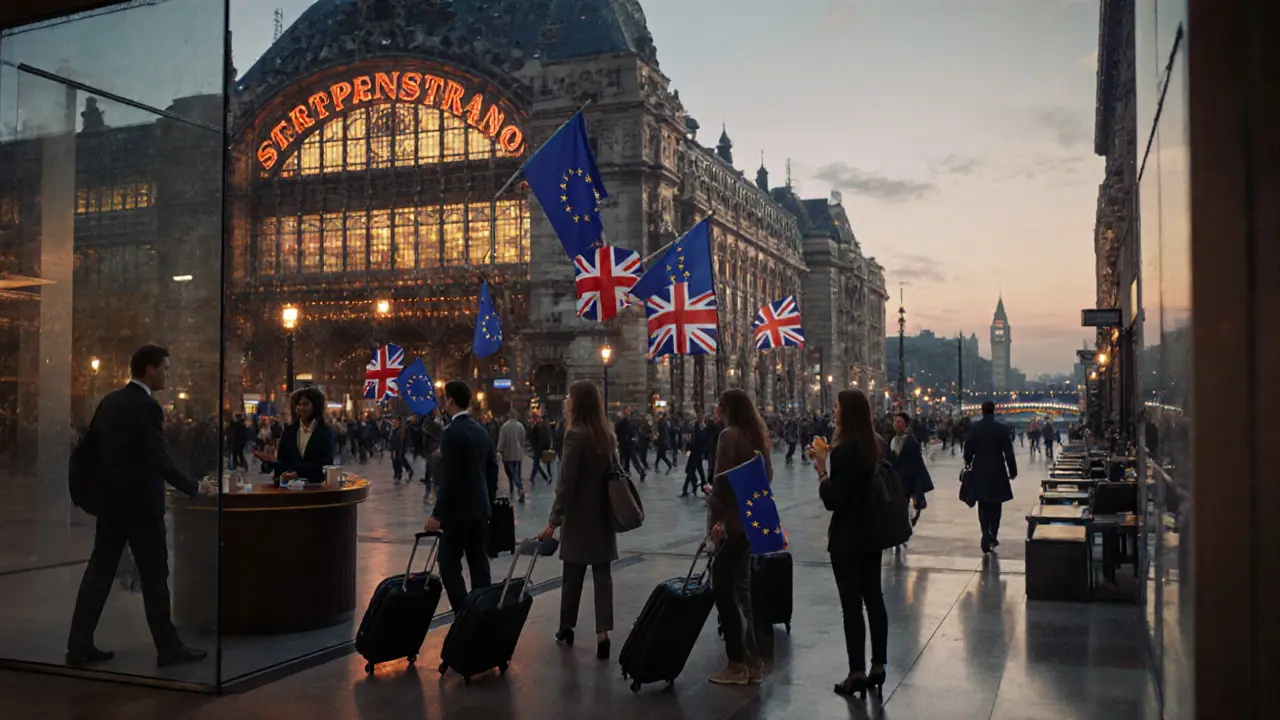Brexit: How the UK’s Exit Reshaped Politics, Economy, and Daily Life
When discussing Brexit, the United Kingdom’s formal withdrawal from the European Union in 2020. Also known as the British exit, it reshaped laws, markets, and daily life across the UK. This massive shift didn’t happen in a vacuum – it pulled in a web of related entities that still dictate how Britain runs today.
One of those entities is European Union, the 27‑nation political and economic bloc the UK left. The EU set the rules that governed everything from customs duties to free movement, so when Brexit took effect, those rules had to be rewritten. Another core piece is UK trade policy, the set of agreements and regulations Britain now creates on its own. With the EU out of the picture, the UK had to forge new deals, renegotiate old ones, and decide how much tariff protection it wanted for each sector.
Brexit also forced a rethink of immigration rules, the system that controls who can live and work in the UK. The points‑based model that replaced freedom of movement changed hiring practices for many industries, from tech firms to hospitality venues. Those changes ripple into everyday economics: a tighter labor pool can push wages up, while new customs checks can add cost to imported goods.
Key Areas Affected by Brexit
First, trade. The UK now runs its own customs regime, meaning every shipment crossing the Channel faces paperwork, possible delays, and new fees. Companies that relied on seamless EU supply chains have had to adapt, some by sourcing locally, others by setting up EU‑based subsidiaries. The result is a mixed picture – certain sectors like agriculture feel the squeeze, while others, like fintech, have leveraged regulatory freedom to attract talent.
Second, the economy. After the 2020 transition, GDP growth slowed, inflation surged, and the pound dipped in value. Analysts point to the uncertainty around trade deals and the cost of regulatory divergence as major drivers. Yet the government argues that long‑term fiscal autonomy will let Britain shape tax policy and public spending to its own priorities.
Third, immigration. The points‑based system favors high‑skill applicants, which has helped fill some tech vacancies but left low‑skill sectors scrambling for workers. This shift also sparked debates about housing, public services, and cultural integration, topics that dominate local elections and media coverage.
Finally, everyday life. From longer line‑ups at border crossings to new labeling on food products, Britons notice Brexit in small ways. Even niche markets, like personalized services, felt the impact. For example, industries that once relied on seamless EU travel for clients – such as high‑end hospitality and certain private‑service sectors – now adjust pricing and logistics to account for new border rules.
All these threads connect back to the core idea that Brexit isn’t just a political event; it’s a set of interlinked changes that affect trade, immigration, and the broader economy. The articles below unpack each of these angles, offering practical tips, data‑driven insights, and real‑world examples of how life in post‑Brexit Britain is evolving.
Brexit’s Impact on London’s Escort Industry - 2025 Overview
Explore how Brexit reshaped London's escort industry, from workforce changes and tax rules to legal risks and future trends in 2025.

